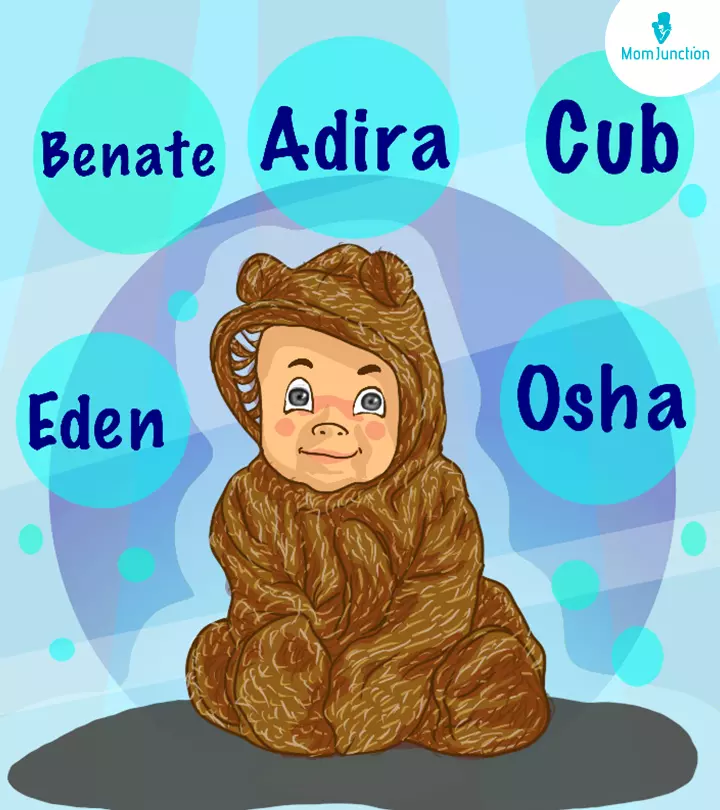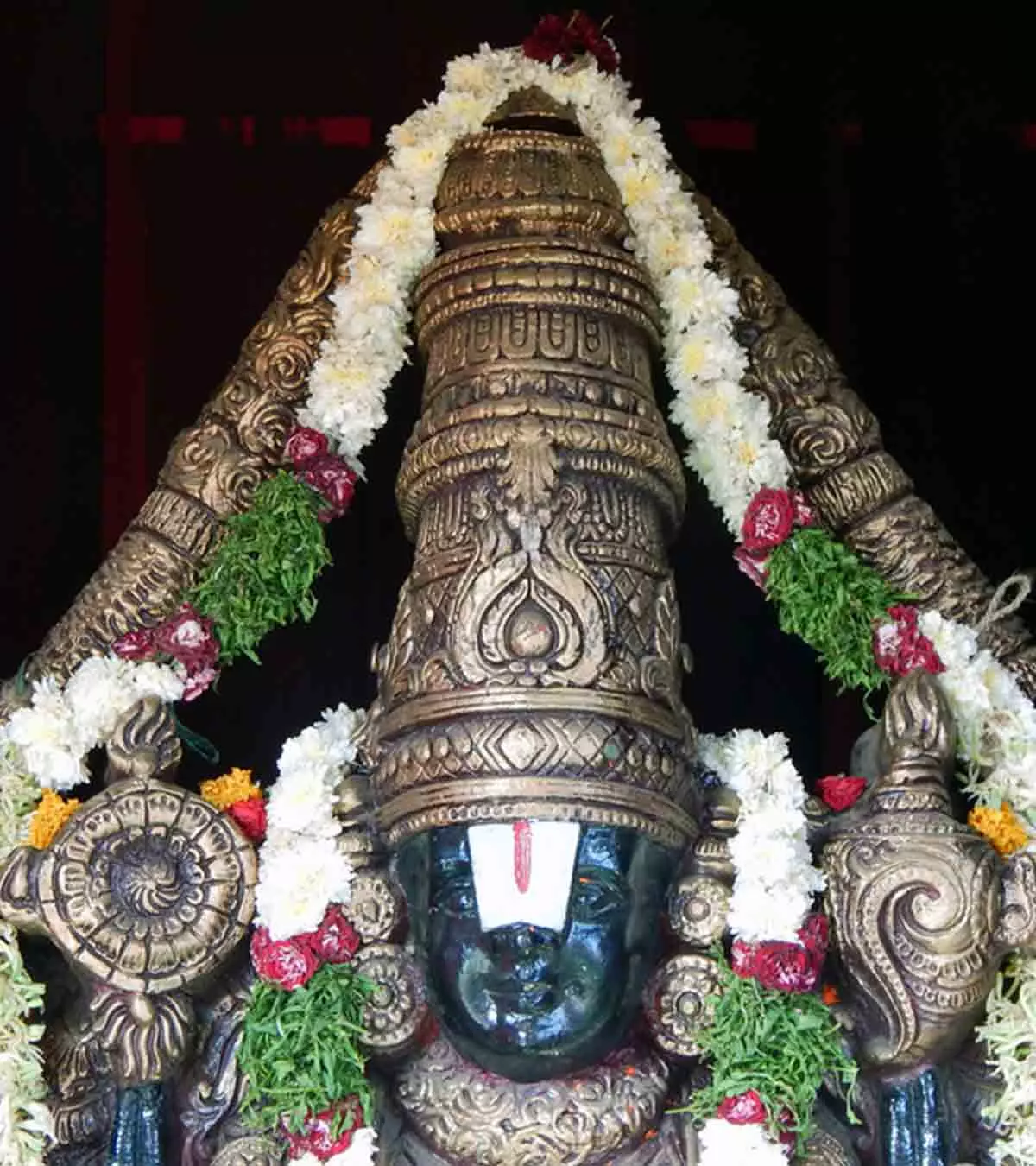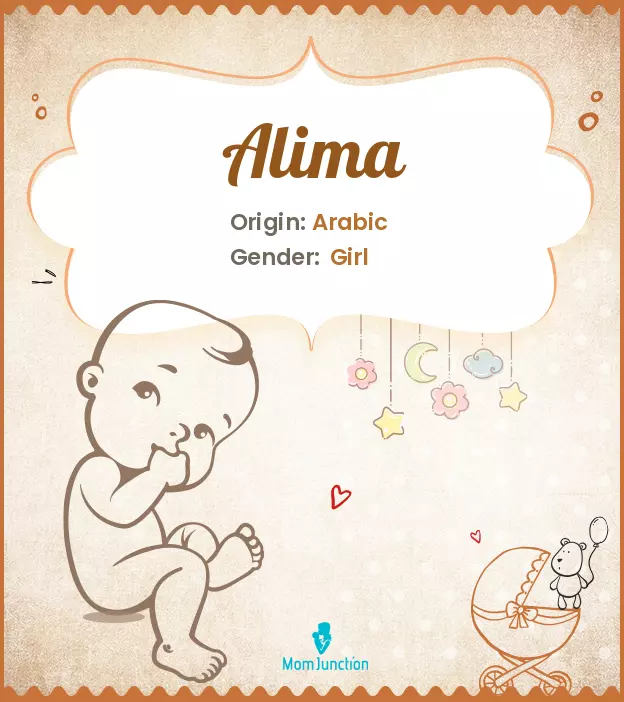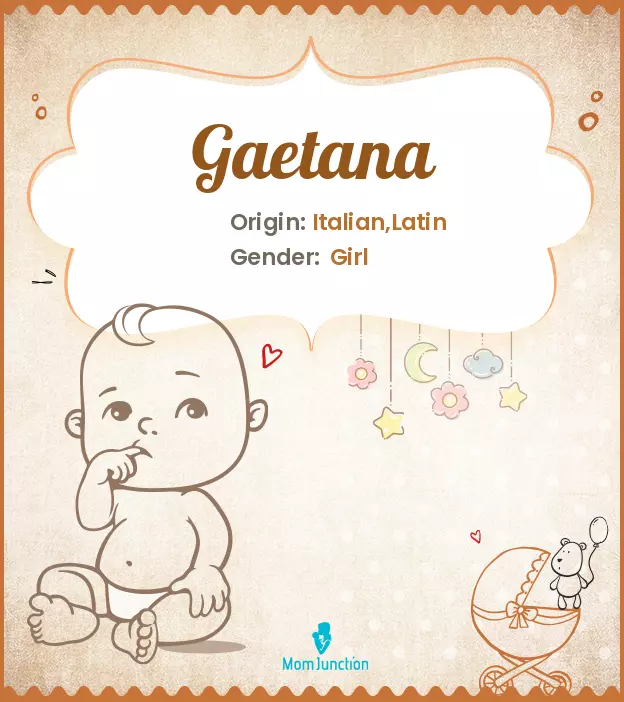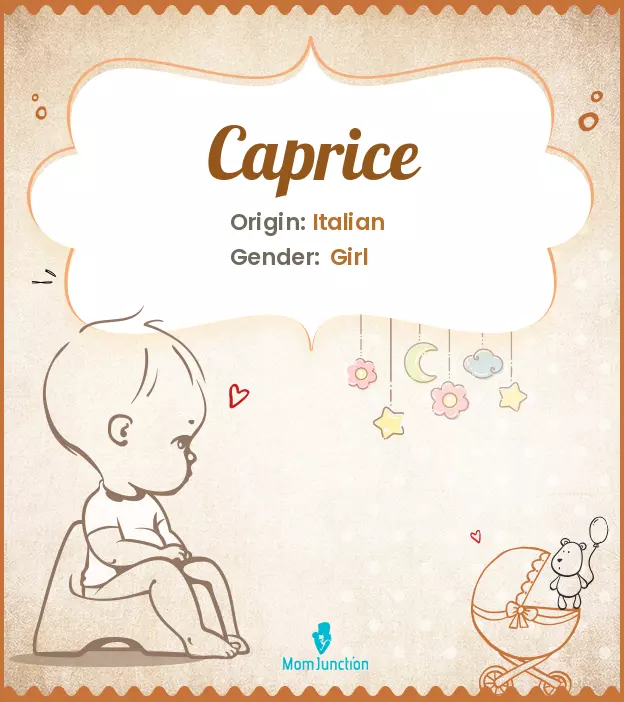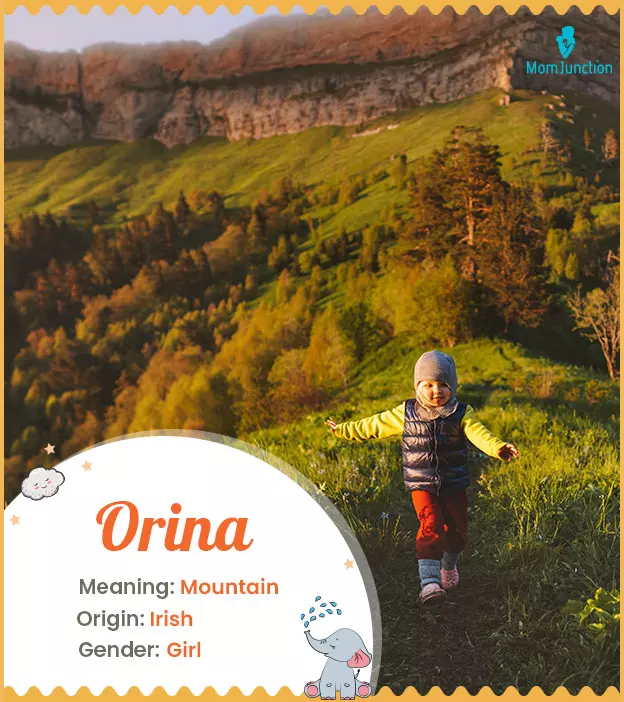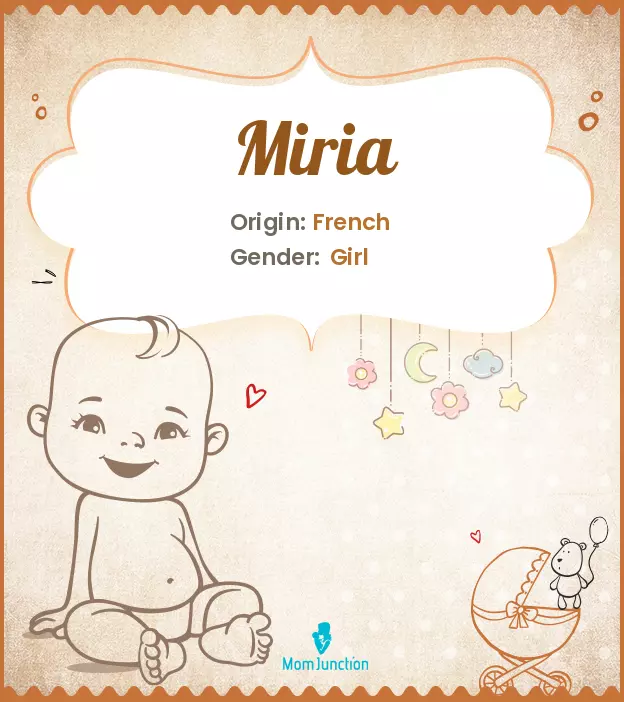
Image: Momjunction Design Team
The ’40s may be known as ‘the war years,’ but 1940s names are a symbol of something more vibrant and humane. They are the mirrors of culture, art, and fashion, inspired by individuals in the limelight such as Katharine Hepburn, Rita Hayworth, John Wayne, and more. These monikers also reflect influences of different cultures, languages, and even religions. Names popular in the 40s show a mix of strength, glamor, and creativity that still catches our eye today. Have a look at our list to find a name you like.
Key Pointers
- Despite being called the ‘war years,’ 1940s names symbolize glamor and creativity, filled with vibrant colors.
- Names like Ann, Jo, June, and Rose are a few feminine names from the 1940s that are short and simple.
- Martha, David, Mary, Judith, Andrew, Daniel, and Joseph are examples of Biblical names popular in the 1940s.
- Many diminutives were also common in the 1940s, such as Rita, Judy, Bill, Fred, and more.
Historical Significance Of 1940s Names
The 1940s were a time of social and cultural change in the US. These years were marked by World War II and its aftermath. The country had just recovered from the Great Depression, and numerous refugees from war-torn countries immigrated to the US (2). Many babies were named after war heroes and leaders, and German and Irish-origin names entered the US and became anglicized to fit the local culture.
Movies, with the addition of sound, had become incredibly popular, and musicians like Frank Sinatra and Sarah Vaughan became icons (3). The era also gave birth to comic characters such as Mickey Mouse and Superman. Marvel released its first Captain America comic in 1941, and in the same year, the carving of Mount Rushmore was completed (4)(5).
In the Post-War years, the American economy boomed, and many people entered the middle class, found work, and had money to spend. These socio-cultural changes impacted people’s tastes in names, as classic elegant names like James, Robert, John, William, Linda, Mary, Barbara, and Patricia came to the forefront (1).
200+ Unique Baby Names In The 1940s
According to the SSA, the names on this list were some of the most loved monikers back then (1).
1940s Girl Names
Have a look at this list of popular feminine names during the 1940s and discover some timeless and elegant options.
1. Alice
Alice is a well-loved appellation worldwide. The name has its roots in Old French and Germanic. Taken from the Germanic name Adalheidis or Adelaide, it carries the connotation of ‘nobleness’ or ‘nobility.’
2. Anita
Anita is a popular choice in two different parts of the globe. As a European name, it is a diminutive of Ann or Anna, names derived from the Hebrew Hannah, meaning ‘favor’ or ‘grace.’ However, as an Indian name, Anita has Sanskrit roots and is the feminine form of Anit. It means ‘not guided.’
3. Ann
This feminine name has been in use since the Middle Ages. As the English and Manx form of Anne, Anna, or Hannah, it has roots in Hebrew and it means ‘favor’ or ‘grace.’
4. Anna
The variants and diminutives of Hannah were a popular choice during the 40s. Anna is a widely used name in different parts of the world. The popularity of the name may also be attributed to its usage in the Bible. Anna means ‘favor’ or ‘grace.’
5. Anne
Anne is the French form of Anna but also used as a masculine name in Frisian. The feminine connotation of Anne is ‘favor’ or ‘grace.’ In Frisian, Anne is usually the shortened form of Old German names that carry the ‘arn’ element, meaning ‘eagle.’
6. Annie
A diminutive of Anne mainly used by the English, French, and Dutch-speaking communities. Derived from Hannah, a Hebrew name, it means ‘grace’ or ‘favor.’
7. Arlene
Arlene is a Filipino and English name that comes from Arline. The exact meaning of the name remains a mystery. However, there are speculations that the name came into existence through Michael William Balfe, who created the name for the main character in his opera The Bohemian Girl.
8. Barbara
Many may not know that Barbara is actually a Greek name. Taken from the Greek word ‘barbaros,’ it means ‘foreign.’
9. Betty
A cute and lovely diminutive of Elizabeth, Betty has been a popular choice for ages. It means ‘my God is an oath,’ and is further popularized by one of the main female characters in Archie Comics named Betty Cooper.
10. Beverly
Beverly is a unisex name that has its origins as a surname. It was derived from the name of a Yorkshire city that means ‘beaver stream.’ The name initially gained popularity as a masculine name in the 19th century and gradually came to be used as an American feminine name.
11. Bonnie
Taken from the Irish word ‘bonnie,’ this feminine name means ‘pretty.’ The film Gone with the Wind might have boosted its popularity.
12. Brenda
This name has Old Norse roots and traveled to Britain during the Middle Ages. Inspired by the masculine name Brandr, Brenda is the feminine form and means ‘fire,’ ‘torch,’ or ‘sword.’
13. Carol
Carol is a unisex name in the English-speaking world. A shortened version of Caroline or Carolus, it could either mean ‘hymn,’ ‘song,’ ‘man,’ or ‘army.’ In Romania, Carol is perceived as a masculine name that carries the connotation of ‘man’ or ‘army.’
14. Carole
Similar to Carol, Carole is the French alternative and feminine form of Carolus. With roots in German, it means ‘man’ or ‘army.’
15. Carolyn
Carolyn is a spelling variant of Caroline, the feminine form of Carolus. It carries the meanings of ‘man’ or ‘army’ and has Germanic origins.
16. Catherine
This name is popularly seen as a French spelling of Katherine and widely used by English speakers. Catherine comes from the Greek name Aikaterine and carries multiple connotations such as ‘each of the two,’ ‘my consecration of your name,’ or ‘pure.’
17. Charlene
There are two ways to pronounce this elegant name, ‘shahr-LEEN’ or ‘chahr-LEEN.’ Charlene is the feminine form of Charles and is rooted in Germanic. It carries the connotations of ‘man’ or ‘army.’
18. Charlotte
Charlotte is another feminine form of Charles but is commonly seen in the French communities. The British started using the name in the 17th century. One of the famous bearers of this name was author Charlotte Brontë.
19. Cheryl
A name perhaps brought into the limelight by actress Cheryl Walker, it is an elaboration of Cherie, which means ‘darling.’ As an English name, Cheryl may have been combined with Beryl, which refers to a precious stone.
20. Christine
Christine is a popular European name, however, it is specifically the French alternative of Christina. Derived from the masculine medieval Latin name Christian, Christine means ‘a Christian.’
21. Connie
A unisex appellation, but Connie is mostly used as a feminine name, Connie comes from Constance or other names that begin with ‘Con.’ With Late Latin roots, the name means ‘constant’ or ‘steadfast.’
22. Constance
Constance is the Medieval spelling for Constantia, the feminine form of Constans. It is a Late Latin name that means ‘constant’ or ‘steadfast.’
23. Cynthia
A name that has made its mark in Greek mythology. Cynthia has Greek roots and comes from the given name Kynthia, meaning ‘woman from Cynthus.’ Cynthia has also been used as a reference to the goddess Artemis.
24. Darlene
You may have guessed the meaning of this name based on its sound. The name is derived from the English word ‘darling,’ and combined with the suffix ‘lene.’
25. Deborah
Deborah is a well-loved name over the centuries. With roots in Hebrew, Deborah is also a Biblical name that means ‘bee.’
26. Delores
A variant of Dolores, Delores comes from a Spanish title for the Virgin Mary and it means ‘sorrow.’ The name grew in popularity in America during the 30s and 40s.
27. Diana
An elegant name, Diana is famous in many parts of the world. The name has Latin roots and it means ‘divine’ or ‘goddess-like.’
28. Diane
Diana has a plethora of spelling variants and Diane is one of them. Frequently used by the French-speaking population, Diane has Latin roots and carries the connotations of ‘goddess-like’ or ‘divine.’
29. Dolores
Delores wasn’t the only popular choice during the 40s, the original name was also a top pick. With Spanish roots, Dolores means ‘sorrow.’
30. Donna
Either taken from the Italian word ‘donna’ for ‘lady,’ or as a feminine form for Donald, Donna made its mark during the 40s.
31. Doris
Coming from the shores of Greece, Doris is a Greek name, which was used to refer to the Dorians, a tribe who occupied the Peloponnese during the 12th century. Doris means ‘Dorian woman.’
32. Dorothy
Dorothy is a variant of Dorothea. The English name has been in use since the 16th century. However, the name has its roots in Greek and means ‘gift of God.’
33. Edna
Edna is both a Hebrew and a Biblical name. In the Old Testament, Edna was the wife of Raguel. The name means ‘pleasure,’ and was borne by American poet and playwright, Edna St. Vincent Millay.
34. Eileen
Used as an Irish and English name, Eileen is the anglicized spelling of Eibhlín, the Irish form of Aveline. In some cases, Eileen is considered to be the Irish form of Helen, a Greek name that means ‘torch’ or ‘corposant.’
35. Elaine
Elaine is an English and Arthurian Romance name. It is an Old French form of Helen, a Greek name meaning ‘corposant’ or ‘torch.’ According to the legends of Arthur, she was Lancelot’s lover and mother of Galahad.
36. Eleanor
Taken from the Occitan Alienòr, this name is considered an Old French name borne by the Queen of France and later, England. The exact meaning of the name remains unknown.
37. Elizabeth
A classic and timeless appellation, Elizabeth is a name borne by numerous influential women throughout the ages. A Hebrew and Biblical name, Elizabeth means ‘my God is an oath.’
38. Ellen
Ellen is a popular Scandinavian feminine name and a spelling variant of Helen. With Greek origins, the name means ‘torch.’ However, as a Dutch name, Ellen is the shorter version of Eleonora or Eleanor.
39. Evelyn
Many think that Evelyn is a feminine given name, however, it can be used as a gender-neutral appellation. It was originally used as a surname derived from the given name Aveline, and has Old German roots. However, the meaning is unknown.
40. Frances
With a slight change in spelling, Frances is the feminine form of Francis, a Late Latin name that means ‘Frenchman.’
41. Gail
Although it is commonly seen as an independent name, Gail is the shortened form of Abigail. A Biblical name with Hebrew roots, Gail means ‘my father is joy.’

42. Geraldine
This name came into existence through the poet Henry Howard, who used it in a sonnet. The feminine form of Howard, this Germanic name means ‘power of the spear.’
43. Glenda
Glenda is probably a combination of the masculine name Glenn with the suffix ‘da.’ With Scottish roots, the name comes from the Gaelic word ‘gleann,’ which means ‘valley.’
44. Gloria
Another feminine name derived from the title of the Virgin Mary, Gloria is a Spanish and Portuguese name derived from ‘Maria da Glória’ and ‘María de Gloria.’ When translated, the name means ‘glory.’
45. Helen
Since Helen’s variants made the list, it’s only fair the original name is mentioned as well. Helen is a classic Greek name that means ‘torch’ or ‘corposant’ and may also refer to the ‘moon.’ Helen was the name of one of the most beautiful women in Greek mythology.
46. Irene
Irene was a well-loved name in the US during the 40s. It comes from the Greek name Eirene and means ‘peace.’
47. Jacqueline
Jacqueline is the French feminine form of Jacques or James. At its root, Jacqueline is a Biblical Hebrew name and means ‘holder of the heel’ or ‘may God protect.’
48. Jane
A dainty feminine appellation, Jane is the Medieval English form of Jehanne, the Old French feminine form of John. Jane means ‘God is gracious.’
49. Janet
Janet is related to Jane. It is the Medieval spelling variant of Jane, meaning ‘God is gracious’ or ‘holder of the heel.’
50. Janice
An elaborate spelling variant of Jane, the name was possibly invented by author Paul Leicester Ford for his novel Janice Meredith.
51. Jean
Jean can be used as a masculine or feminine name depending on the origin. As a French name, Jean is used for boys and comes from the Hebrew name John. It means ‘holder of the heel’ or ‘Yahweh is gracious.’ However, as a feminine name, Jean is a variant of Jane and holds the same meaning.
52. Jo
This name is commonly used as a shortened form of names starting with ‘Jo,’ for example, Josephine, Joanna, Joan, or Jobeth. Jo can also be used as a masculine name.
53. Joan
Joan is used as a masculine and feminine name. As a masculine name, Joan is the Catalan and Occitan form of Iohannes or John. As a feminine name, it comes from Joanna. In both contexts, the meaning of the name remains the same, that is ‘Yahweh is gracious.’
54. Josephine
This is the feminine form of Joseph, a Hebrew name that means ‘He will add.’ It is commonly seen in English, Dutch, and German-speaking countries.
55. Joyce
You may assume that Joyce means ‘joy,’ but you are wrong. Coming from the medieval masculine name Josse and the Breton name Judoc, Joyce means ‘lord.’
56. Juanita
A vibrant Spanish name that comes from Juana, Juanita is the Spanish equivalent of Joanna or John. It means ‘God is gracious.’
57. Judith
With connections to the Bible, Judith is a Hebrew name meaning ‘Jewish woman.’ Initially, the name carried the connotation of someone who is from the tribe of Judah.
58. Judy
A shortened version of Judith with Hebrew roots and Biblical associations, Judy means ‘Jewish woman.’
59. Julia
Julia is an elegant and noble name that traces its lineage to the Roman family name Julius. There may be possible Greek connections that carry the connotation of ‘downy bearded.’
 Trivia
Trivia60. June
A quirky name for a girl based on the name of the sixth month of the year, June came from the Roman goddess Juno.
61. Karen
This is a popular name in different countries and cultures. As a Slavic name, Karen is used for girls and is inspired by the feminine name Katherine. With Greek roots, the name can either mean ‘each of the two,’ ‘pure,’ or ‘torture.’ In Armenia, Karen is a masculine name and a variant of Garen, an Old Armenian name with no certain meaning. Lastly, as a Japanese name, Karen is given to girls, meaning ‘lotus flower’ or ‘water lily.’
62. Katherine
The exact origin of the name has been in discussion for ages. However, it is assumed that Katherine comes from the Greek name Aikaterine and may have connections with the goddess Hecate. It means ‘each of the two,’ ‘pure,’ or ‘torture.’
63. Kathleen
Kathleen is the Irish spelling of Caitlín or Katherine. Ultimately, it has Greek roots and holds the same meaning as Katherine.
64. Kathryn
A shrunken spelling of Katherine, Kathryn has a Greek origin and shares the same meaning.
65. Laura
A feminine name originating from the Late Latin name Laurus, Laura means ‘laurel.’ It’s a popular name for girls all over the world.
66. Linda
Linda is a linguistically rich appellation. Initially used as the medieval short form for names that contain the ‘lind’ element in German, Linda means ‘soft’ or ‘flexible.’ However, there are connections to the Spanish word ‘linda,’ which means ‘beautiful.’
67. Lois
In Galician, Lois is a masculine name that comes from Louis. However, in English, Lois is a feminine name with Greek origins. Lois also has associations with the New Testament of the Bible and means ‘better’ or ‘more desirable.’
68. Loretta
This Italian feminine name may have been taken from other given names such as Lauretta or Loreto. Loretta could either mean ‘laurel grove’ or ‘laurel.’
69. Lorraine
Lorraine is a distinct feminine name that comes from the name of a region in eastern France, carrying the connotation of ‘kingdom of Lothar.’
70. Louise
Louise is the French and Slavic equivalent of the masculine given name Louis. Louis comes from the German name Ludwig, which means ‘famous in battle.’
71. Lynda
This spelling variant of Linda has its roots in German, Spanish, and Portuguese. According to its Germanic origins, it means ‘soft,’ ‘flexible,’ or ‘tender.’ As for its Spanish and Portuguese roots, it means ‘beautiful.’
72. Lynn
Lynn is often used as a diminutive of Lynda or Linda, but it actually comes from the Welsh word ‘llyn,’ meaning ‘lake.’ Lynn can be used as a gender-neutral name.
73. Marcia
A name that has found its place in the English-speaking world since the 18th century, Marcia is the feminine form of Marcius or Marcus, a Roman praenomen that was derived from the Roman god of war, Mars. Mars denotes ‘man.’
74. Margaret
This dainty appellation comes from the Greek word ‘margarites,’ which means ‘pearl.’ Margaret has always been a top choice for feminine names and has been popular since the Middle Ages.
75. Maria
It is common to see the name Maria in many European countries. Taken from the Hebrew name Miryam, Mary was the mother of Jesus Christ. The name means ‘wished-for child,’ ‘sea of bitterness,’ or ‘rebelliousness.’
76. Marie
Maria may be a European favorite, but the Czech and the French version is Marie. Marie can be pronounced as ‘MA-REE’ in French, ‘MA-ri-yeh’ in Czech, ‘ma-REE’ in German, and ‘mə-REE’ in English. Marie means ‘rebelliousness,’ ‘beloved,’ or ‘sea of bitterness.’
77. Marilyn
Made popular by the American actress, Marilyn Monroe, Marilyn is made up of Mary and the suffix ‘lyn.’ It carries the connotations of ‘beloved,’ ‘sea of bitterness,’ and ‘rebelliousness.’
78. Marjorie
Inspired by the name of the herb marjoram, Marjorie is the Medieval spelling variant of Margery or Margaret. The name has Greek roots and it means ‘pearl.’
79. Marlene
Marlene is another feminine name borne out of creativity. It is the combination of two feminine names, Maria and Magdalene. The name could mean ‘of Magdala’ or ‘wished-for child.’
80. Marsha
Marsha comes from Marcia, the feminine form of Marcus. It is taken from the Roman praenomen derived from the Roman god Mars, which means ‘man.’
81. Martha
A name as old as time, Martha is an Aramaic name that is also found in the Bible. It means ‘the lady’ or ‘the mistress.’
82. Mary
A popular Biblical name with its roots in Hebrew, Mary can mean ‘sea of bitterness,’ ‘wished-for child,’ or ‘rebelliousness.’
83. Maureen
Maureen is an Irish name and is the anglicized spelling of Máirín or Mary, carrying connotations such as ‘sea of bitterness’ or ‘wished-for child.’
84. Mildred
Mildred is a formidable feminine name that has its roots in Old English. It was brought to England through the Norman conquest. It means ‘gentle strength.’
85. Nancy
Nancy is a name that has changed over the centuries. Initially used as a medieval diminutive of Annis, and later on as a diminutive of Ann, Nancy is now considered to be an independent name denoting ‘favor’ or ‘grace.’
86. Norma
This name was invented by Felice Romani for the main character in his opera, Norma. It is taken from the Latin word ‘norma,’ meaning ‘rule.’ In some cases, Norma is also perceived as a feminine form of Norman.
87. Pamela
Names were often invented during the earlier ages and Pamela was poet Philip Sidney’s creation for his work Arcadia. It is taken from Greek elements that mean ‘all sweetness.’
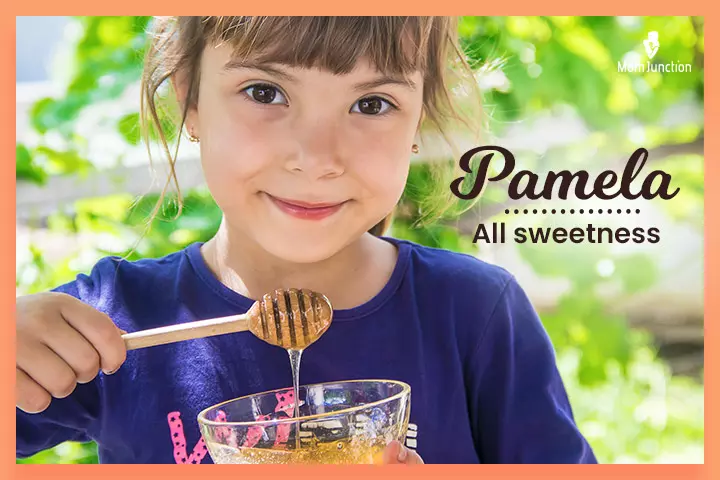
88. Patricia
Did you know that Patricia was not in use as an actual name till the 18th century in Scotland? Patricia is the feminine version of Patrick. With Latin roots, the name means ‘nobleman.’
89. Patsy
Patsy means ‘nobleman’ and can be used as a feminine or a masculine given name since it is a variant of Patty, a diminutive of Patricia and Patrick.
90. Paula
A popular name in European countries, Paula is the female form of Paul and it comes from the Roman family name Paulus, which means ‘small’ or ‘humble’ in Latin.
91. Peggy
Peggy is assumed to be a medieval variant of Meggy, coming from the name Margaret, which means ‘pearl.’
92. Phyllis
Phyllis is a name found in Greek mythology, which carries the connotation of ‘foliage.’
93. Rebecca
An all-time favorite, Rebecca is a Hebrew name with Semitic roots. It could mean ‘join,’ ‘tie,’ or ‘snare.’
94. Rita
Rita is often used as a shortened spelling of Margherita. With connections to Margaret, Rita shares the meaning ‘pearl.’ In Latvian, Rita can also mean ‘morning.’ The name is also found as an Arabic, Persian, and Indian name. Its Sanskrit meaning is ‘true custom,’ ‘enlightened rite,’ or ‘righteous rule.’ In Persian, Rita means ‘black pearl.’
95. Roberta
You may have guessed the masculine form of this name. With roots in German, Roberta means ‘bright fame.’
96. Rose
Who does not love a floral name for a baby girl? However, Rose comes from the German name Hrodohaidis, meaning ‘famous type.’
97. Rosemary
A fragrant name made up by combining two feminine names, Rose and Mary. The meaning could have been derived from the herb that derived its name from the Latin term ‘ros marinus,’ meaning ‘dew of the sea.’
98. Ruby
You can consider choosing a precious stone’s name for your gem. Ruby has Latin roots and comes from the word ‘ruber,’ meaning ‘red.’
99. Ruth
Ruth can be used as a feminine and a masculine name depending on the region. In Limburgish, Ruth is used as a boy’s name and means ‘famous spear.’ While in languages such as German, Dutch, Swedish, Norwegian, Danish, and more, it comes from the Hebrew word for ‘friend.’
100. Sally
A diminutive of Sarah, Sally is also used as an independent name. With Hebrew roots, the name carries connotations such as ‘lady,’ ‘princess,’ or ‘noblewoman.’
1940s Boy Names
Masculine names during the 1940s exude strength and resilience. Shortened names also made a mark during the era. Explore some simple yet charming names for your son.
101. Alan
The exact origin of this name remains a mystery. However, Alan was first used in Brittany as early as the 6th century. In Breton, the name carries the connotations of ‘handsome’ or ‘little rock.’
102. Albert
A mighty name for a little warrior, Albert comes from the Germanic name Adalbert and means ‘noble and bright.’
103. Alfred
Alfred is made up of two Old English elements and means ‘elf counsel.’ One of the famous bearers of the name was British poet, Lord Alfred Tennyson.
104. Allen
Allen is a spelling variant of Alan or it is taken from a surname with the same spelling. It could mean ‘handsome’ or ‘little rock.’
105. Alvin
This name came into existence centuries ago but in different Old English forms such as Ælfwine, Æðelwine, or Ealdwine. Alvin could mean ‘elf friend,’ ‘noble friend,’ or ‘old friend,’ respectively. In Scandinavia, the name comes from Alfvin, an Old Norse cognate of Ælfwine.
106. Andrew
Andrew is a popular masculine name with Greek roots. It comes from the word ‘andreios,’ meaning ‘manly.’
107. Anthony
This name has been set in history by the Roman general Marcus Antonius, known as Mark Antony in English. Anthony comes from the Roman family name Antonius and it could mean ‘flower.’
108. Arthur
The exact meaning of the name remains vague, but based on its Celtic origins, it could carry the connotations of ‘bear man’ or ‘bear king.’
109. Barry
An Irish and English name, Barry is the anglicized form of Barra. Barry could either be a shortened form of Finbar or Bairrfhionn, meaning ‘white top,’ ‘blessed head,’ or ‘fair-headed.’
110. Bernard
Bernard came to the shores of England through the Norman conquest. It has Germanic roots and possibly means ‘brave bear.’
111. Bill
You may know a lot of Bills today, but this name was rarely used before the 19th century. Bill is the shortened form of William, a Germanic name that means ‘will-helmet.’
112. Billy
Billy also comes from the Germanic masculine name William. However, it is commonly seen as a diminutive and means ‘will-helmet.’
113. Bob
Short forms were a hit during the 40s and Bob is one of them. Bob is the contracted version of Robert, a Germanic name that means ‘bright fame.’
114. Bobby
Bobby was one of the well-loved names during the 1940s. Being a diminutive of Bob and Robert, it holds the same meaning.
115. Brian
The meaning of Brian remains ambiguous. However, it originated from the Celtic word ‘brixs, meaning ‘hill,’ or ‘high,’ or ‘brigā,’ meaning ‘power.’
116. Bruce
Bruce comes from a Scottish locative last name with Norman origins. The name was used to refer to someone from the town of Brix in France. It has been popularized by several actors and comic characters, such as Bruce Lee and Bruce Wayne or Batman.
117. Carl
Carl is the German and Scandinavian spelling of Karl, which is a variant of Charles. With roots in German, the name means ‘army.’
118. Charles
Charles is the French and English equivalent of the masculine name Carolus. However, it is deep-rooted in German and means ‘man’ or ‘army.’
119. Clarence
A name with a touch of royalty, Clarence comes from the Latin title Clarensis. Clarence was often bestowed on the members of the British royal family. It began to be used as a given name during the 19th century.
120. Clifford
Many masculine names first existed as surnames and Clifford is one of them. It has Old English roots and comes from a place name that means ‘ford by a cliff.’

121. Clyde
Names inspired by nature carry a powerful and magnetic aura about them. Clyde comes from the river Clyde in Scotland, and became popular in America during the 19th century.
122. Craig
Craig comes from a Scottish habitational surname meaning ‘crag,’ ‘rocks,’ or ‘outcrop.’ The name was often used for someone who lived near a crag.
123. Curtis
With roots in Old French, Curtis was originally used as a surname that means ‘courteous.’
124. Dale
Dale is seen as a gender-neutral name. It comes from an English habitational surname for someone who lives near a dale or valley.
125. Daniel
One of the most widely known Biblical names for boys. Daniel is a Hebrew name meaning ‘God is my judge.’
126. Danny
This English and Dutch name is a diminutive of Daniel. Its roots can be traced back to Hebrew and the name means ‘God is my judge.’
127. David
David is a Hebrew name that means ‘uncle’ or ‘beloved.’ According to the Bible, he was one of the greatest kings of Israel.
128. Dennis
Dennis is the English, German, and Dutch spelling of Denis. The origin of the name comes from the Greek name Dionysos, which means ‘of Zeus.’
129. Don
A contracted form of Donald, Don has Scottish Gaelic roots and carries the meaning of ‘ruler of the world.’
130. Donald
Donald comes from the Scottish Gaelic appellation Dòmhnall and means ‘ruler of the world.’
131. Douglas
Originating as a Scottish surname, Douglas comes from the name of a town in Lanarkshire. The name has Gaelic roots and means ‘dark water.’
132. Earl
Earl is used as a royal title and it comes from the Old English word ‘eorl,’ meaning ‘nobleman’ or ‘warrior.’
133. Eddie
For names that start with ‘Ed,’ Eddie is a common diminutive. Eddie could either be derived from Edmund or Edward and its meaning will depend on the original name.
134. Edward
When you think of classic English names for boys, Edward always comes to mind. It is an Old English name that means ‘rich guard.’
135. Edwin
Edwin is also an Old English name that shares its root with Edward. Edwin means ‘rich friend,’ and was the name of the 7th-century Northumbrian king. The name resurrected in popularity during the 19th century.
136. Ernest
An Old High German appellation, Ernest means ‘earnest’ or ‘serious.’
137. Eugene
Eugene comes from the Greek name Eugenios, taking its meaning from the word ‘eugenes,’ which means ‘well-born.’
138. Floyd
Floyd is a spelling variant of Lloyd. With roots in the Welsh word ‘llwyd,’ Floyd means ‘grey.’
139. Francis
Francis is used as a masculine and a feminine given name. It is the English spelling of the Late Latin name Franciscus. This name is used for someone who is a ‘Frenchman.’
140. Frank
The Franks were a Germanic tribe who settled in France, Belgium, and the Netherlands. This Old German name was used as a reference to this tribe.
141. Fred
Fred is not only a shortened form of Frederick, it can also be a diminutive of names that have the same element. The name carries German roots and means ‘peaceful ruler.’
142. Frederick
A trendy option for boys in Germany. Frederick has Old German roots and means ‘peaceful ruler.’
143. Gary
Initially used as an English surname that was taken from a Norman last name, Gary started as a shortened form of German names that begin with ‘Ger.’ However, it means ‘spear.’
144. Gene
Gene comes from Eugene, a Greek name meaning ‘well-born.’
145. George
Many may not be aware that George actually comes from the Greek name Georgios and implies someone who is a ‘farmer’ or an ‘earthworker.’
146. Gerald
Gerald is a Germanic name that means ‘power of the spear.’ It was brought to England by the Normans.
147. Glenn
This English name was initially used as a Scottish surname. The meaning is derived from the Gaelic word ‘gleann,’ meaning ‘valley.’
148. Gordon
Gordon is used in the English and Scottish-speaking communities. Originally a Scottish last name based on a place in Berwickshire, the name is derived from Brythonic elements and means ‘spacious fort.’
149. Gregory
Do not confuse the origins of Gregory with George. Gregory also carries Greek roots but comes from the name Gregorios, meaning ‘watchful’ or ‘alert.’
150. Harold
Harold is derived from the Old English name Hereweald and possibly means ‘powerful army’ or ‘mighty army.’
151. Harry
A name well-loved in the fictional and real world, Harry is the medieval spelling of Henry, a Germanic name that means ‘home ruler.’
 Trivia
Trivia152. Harvey
This name was borne by a Breton hermit who is considered to be the patron saint of the blind. Harvey is derived from the Breton name Haerviu, which means ‘battleworthy.’
153. Henry
Henry is a name with Germanic roots meaning ‘home ruler.’ One famous individual with the name is British actor, Henry Cavill.
154. Herbert
Composed of two German elements, Herbert means ‘bright army.’ According to history, the name was borne by two Merovingian Frankish kings. The name was first brought to England by the Normans.
155. Howard
Howard comes from an English surname with German, Anglo-Scandinavian, Old Norse, or Middle English origins and could mean ‘brave spirit,’ ‘battle guard,’ or ‘ewe herder.’
156. Jack
This name could either be a medieval diminutive of John or influenced by the French name Jacques. During the Middle Ages, Jack was used to denote ‘man.’
157. James
James is the English form of the Late Latin name Iacomus or the Hebrew Ya’aqov, or simply Jacob. James is also found in the New Testament of the Bible as the name of two apostles. The name means ‘supplanter’ or ‘holder of the heel.’
 Did You Know?
Did You Know?158. Jeffrey
Jeffrey comes from the given name Geoffrey. In the US, Jeffrey is more frequently seen than Geoffrey, however, it is the opposite in Britain. The name could mean ‘peaceful territory’ or ‘peaceful foreigner.’
159. Jerome
A name once borne by Saint Jerome, also known as the ‘Doctor of the Church,’ Jerome carries Greek roots and means ‘sacred name.’
160. Jerry
A versatile appellation that can be used by both genders, Jerry is a diminutive of personal names such as Jeremy, Jerome, Gerald, and Geraldine. The meaning of the name can be taken accordingly.
161. Jesse
Jesse rose to popularity after the Protestant Reformation. The name carries Hebrew roots and means ‘gift.’ In the Bible, it was the name of King David’s father.

162. Jim
Jim is the medieval spelling of James or Jacob. It has its roots in Hebrew and means ‘supplanter’ or ‘may God protect.’
163. Jimmy
Jimmy is also a diminutive of James, a Hebrew name that means ‘may God protect’ or ‘supplanter.’
164. Joe
Joe is the shortened spelling of Joseph. The name has Hebrew roots and carries a lovely connotation of ‘He will add.’
165. John
Originating from the Hebrew name Yochanan, John is also a popular Biblical name and means ‘Yahweh is gracious.’ The name can be found in both the Old and the New Testaments.
When naming babies, religion and faith also play a major role. Sharing her experience of naming her first child, a mother of seven, Rosie says, “John Paul was an easy pick for our firstborn, both because we loved JPII (Pope John Paul II) and because it’s a family name and even before Andrew (her husband) became Catholic, he wanted to name his firstborn son John Paul (i).”
166. Johnny
A diminutive of John, Johnny also has Hebrew roots and means ‘God is gracious.’
167. Joseph
Biblical names were extremely popular during the 40s and Joseph is one of them. It has its roots in Hebrew and means ‘he will add.’ According to the Bible, Joseph is the husband of Mary, the mortal father of Jesus Christ.
168. Keith
Keith was originally used as a locative Scottish surname. Derived from a place name in East Lothian, Keith possibly has Celtic roots and means ‘wood.’
169. Kenneth
Kenneth is actually the anglicized form of Coinneach and Cináed. The name could mean ‘handsome,’ ‘beautiful,’ ‘to be born by fire,’ ‘fiery respect,’ or ‘come into being through fire.’
170. Larry
Larry comes from the Roman name Laurence. The name could either mean ‘from Laurentum’ or ‘laurel.’
171. Lawrence
Lawrence is a spelling alternative to Laurence, a name derived from a Roman cognomen. It could carry connotations of someone who is ‘from Laurentum’ or a ‘laurel.’
172. Lee
When people hear the name Lee, they may think of Asian last names. However, Lee is an Old English surname derived from the word ‘leah,’ meaning ‘clearing.’ Lee can be used for both boys and girls.
173. Leon
Leon is an independent Greek name that means ‘lion.’ During the Middle Ages, Leon was a popular choice among the Jews.
174. Leonard
Leonard is similar to Leon, however, they have different origins. Leonard is an Old German name that means ‘brave lion.’
175. Leroy
The name was initially used as a French nickname, ‘le roi,’ which means ‘the king.’ In America, it is a popular choice for African American children.
176. Lewis
Lewis and Louis sound very similar. That is because Lewis is the medieval English form of Louis. It has its roots in German and means ‘famous in battle.’
177. Lloyd
Taken from the Welsh word ‘llwyd,’ Lloyd means ‘grey.’ It is the name of the famous composer Andrew Lloyd Webber.
178. Louis
Louis is the Latinized spelling of Ludwig, a Germanic name that carries the connotation of ‘famous in battle.’ Louis is a name marked by royalty throughout history.
179. Mark
Mark comes from the Roman praenomen Marcus, a name connected to the Roman god of war, Mars. An important name in the Christian world, Saint Mark is recognized as the author of the second gospel in the New Testament.
180. Martin
Taken from the Roman name Martinus or Martis, which are derived from the name of the Roman god Mars, Martin might mean ‘male.’ An important individual who bore the name was Martin Luther King Jr.
181. Marvin
The origin of Marvin can be attributed to the Welsh name Merfyn or the Old English name Mærwine. According to these roots, Marvin could mean ‘wishing sea’ or ‘famous friend,’ respectively.
182. Melvin
The name comes from a Scottish surname that is a variant of Melville. Melvin existed as a place name that translated to ‘bad town.’
183. Michael
A Biblical Hebrew name, Michael means ‘who is like God?’ In the Bible, Michael is identified as an archangel.
184. Mike
This popular masculine name is the shortened spelling of Michael. It has its roots in Hebrew and means ‘who is like God?’
185. Norman
Norman emerged as an old Germanic byname used to refer to the Scandinavians. It means ‘northman.’
186. Patrick
Patrick is derived from the Latin name Patricius, which means ‘nobleman.’ Saint Patrick is popularly known as the patron saint of Ireland.
187. Paul
Another important name in the Christian community, Paul comes from the Roman family name Paulus, which means ‘small’ or ‘humble.’ The name Paul can be found in the New Testament of the Bible and he is considered to be an influential individual to the early Christian church.
188. Peter
Peter is also a Biblical name, however, it differs in terms of origin. It is a Greek name and means ‘stone.’
189. Philip
Created by combining two Greek elements, Philip comes from the Greek name Philippos, which means ‘friend of horses.’ Philip was the father of Alexander the Great. In the Bible, it is the name of two saints.
190. Ralph
A shortened form of the Old Norse name Ráðúlfr, Ralph means ‘wolf counsel,’ and was brought to England by the Normans.
191. Ray
Although Ray is a shortened form of Raymond, Ray is commonly found as an independent name. As an English term, it means ‘beam of light,’ but taken from its roots, Ray means ‘protective counsel.’
192. Raymond
Raymond comes from the Germanic name Raginmund and means ‘protective advice’ or ‘protective counsel.’ Raymond is another name introduced by the Normans.
193. Richard
Richard is an Old Germanic name that means ‘brave ruler.’ Richard was the name of numerous kings throughout history.
194. Robert
Replacing the Old English cognate Hreodbeorht, Robert is of Germanic origin and means ‘bright fame.’
195. Rodney
Initially used as an English surname, Rodney comes from a place name, meaning ‘Hroda’s island.’ According to history, it was first used as a given name by British admiral Lord Rodney.
196. Roger
A common name in England during the Middle Ages, Roger was introduced by the Normans. It is a Germanic name that means ‘famous spear.’

197. Ronald
Ronald is the Scottish form of Ragnvaldr, an Old Norse name that means ‘ruler’s advice.’ It was brought to Britain by Scandinavian settlers and invaders.
198. Ronnie
Used as both a feminine and a masculine name, Ronnie is either a diminutive of Ronald or Veronica. It would take on the meaning of the name it was derived from.
199. Roy
Roy is the anglicized spelling of Ruadh, a Scottish and Irish byname that means ‘red.’ Sometimes it is also connected to the French word ‘roi,’ meaning ‘king.’
200. Russell
Originating from an English surname with Norman roots, Russell means ‘little red one.’
201. Steve
Steve is the shortened form of Steven or Stephen. The name has Greek roots and could either mean ‘crown’ or ‘wreath.’
Going through these 1940s names can feel like going through an old chest filled with beautiful memories. They are timeless appellations that reflect the beauty and history of the past. From the darling Cheryl to the friendly Philip, our list is bursting with names that carry nostalgic and meaningful names. While some names may have lost their popularity in recent years, most still reign in our hearts. So, immerse yourself in the wonders of the 40s to find the most evergreen name for your baby.
Discover More Names
When you have to choose a name for your baby, a few hundreds of names may not be just enough. Keep digging our mine of baby names until you find that one precious gem.
Frequently Asked Questions
1. Were there notable influences on baby names during the 1940s?
The 1940s are referred to as the war years since it was the time of World War II. Many German names or those with Germanic roots were popular, for instance, Geraldine, Louise, Lynda, and Bernard (2). Some names were inspired by World War I heroes such as Albert, Douglas, Eugene, Henry, and Alvin.
2. Were there specific naming conventions or traditions in the 1940s?
During the 1940s, people adhered more to the naming traditions of their ancestors. However, the influence of Biblical figures was present in society. Also, people were more inclined to give short and simple names, such as Steve and Linda.
3. How did ethnicity influence naming choices in the 1940s?
During the 1940s, many fled from war-prone zones to safer areas and countries like the US (2). These immigrants often chose to name their babies according to American trends, while also being influenced by their cultural roots. Consequently, it caused the anglicization of several names, for instance, Barry from the Irish name Barra, Kenneth from CiInead, Roy from Ruadh, and more.
Infographic: Short And Sweet 1940s Baby Names
Several first names for boys and girls that were popular in the 1940s are short and disyllabic with significant meanings. This may represent the preference towards simplicity during that era. The infographic below suggests a few short names common during the 1940s. These names have short spellings and are easy to pronounce, so check them out!

Illustration: Momjunction Design Team
Personal Experience: Source
MomJunction articles include first-hand experiences to provide you with better insights through real-life narratives. Here are the sources of personal accounts referenced in this article.
i. Let’s Play The {Baby} Name Game!https://rosie-ablogformymom.blogspot.com/2016/09/lets-play-baby-name-game.html
References
- Popular names of the period 1940s.
https://www.ssa.gov/oact/babynames/decades/names1940s.html - Gerhart Saenger; (1940); Refugees Here.
https://socialwelfare.library.vcu.edu/issues/refugees-1940/ - Art and Entertainment in the 1930s and 1940s.
https://www.loc.gov/classroom-materials/united-states-history-primary-source-timeline/great-depression-and-world-war-ii-1929-1945/art-and-entertainment-in-1930s-1940s/ - Decennial Census Historical Facts.
https://www.census.gov/programs-surveys/decennial-census/decade/decennial-facts.1940.html#list-tab-1813000050 - World War II and Popular Culture.
https://www.nationalww2museum.org/war/articles/world-war-ii-and-popular-culture
Community Experiences
Join the conversation and become a part of our nurturing community! Share your stories, experiences, and insights to connect with fellow parents.
Read full bio of Benidamika J Latam
Read full bio of Poulami Nag
Read full bio of Reshmi Das







